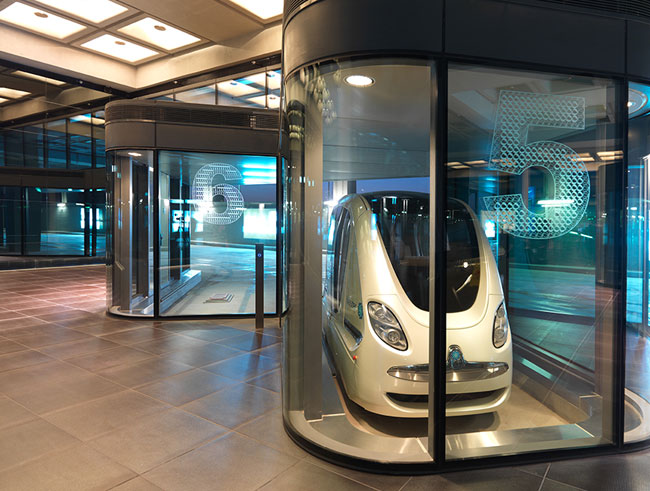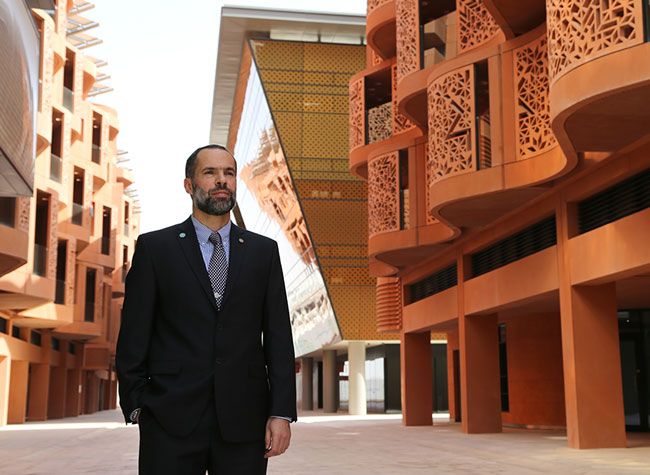Most of our cars are fuel-efficient; “eco-friendly” has become ubiquitous and an incandescent light bulb is a black eye on an otherwise respectable home.
But while the rest of the world is retrofitting buildings and refining existing technologies to make them greener, Youssef Shatilla and his colleagues at the Masdar Institute of Science and Technology have a drastically different approach: they are building the world’s most sustainable city from scratch.
Located 11 miles from Abu Dhabi, Masdar City seems straight out of a futuristic novel. Its buildings are designed with insulating cushions of air in the walls that cut the demand for air-conditioning in half; commuters are shuttled across the city in driverless electric pods; a field of 87,777 solar panels powers the entire city. But that’s not all. Although the temperature in the surrounding desert easily exceeds 100F, Masdar is a brisk 70F thanks to a tower that drives high altitude winds into the streets.
What really makes this project fascinating is that the city functions as the living lab of the Masdar Institute. The master’s students at the university were Masdar’s first residents, and their research has fueled the city’s development. Since its opening in 2009, the school has published over 450 papers, two books and registered nearly 50 patents.
Youssef is the school’s Dean of Academic Programs. Among his myriad responsibilities, he oversees the development of new programs, the fresh research ideas that will be built into Masdar City. With a doctorate from MIT, his personal research interests lie in using nuclear engineering to desalinate water and using nanofluids to design more efficient and sustainable energy systems.
According to him, building Masdar City is only the beginning. The success of the sustainable solutions in the city is a promising sign, but his dream is to see those green technologies address challenges on the global scale. He wants the research at the Masdar Institute to make the world a better place for generations to come.
Ten years ago Masdar city didn’t even exist. Today it is where companies like General Electric, Mitsubishi, and Schneider Electric are setting up offices. It’s where Siemens decided to build its regional headquarters, one of the most sustainable office buildings in the Middle East, and the city is set to become the host of the International Renewable Energy Agency (IRENA).
Masdar city was built with a very clear vision: to find integrated solutions for the world’s most pressing problems and to become society’s blueprint for truly sustainable development. Thanks to Youssef and his colleagues that vision is poised to become a reality.
— When Youssef Shatilla isn’t busy leading the world toward a more sustainable future, he spends his spare time serving as a commissioner on ABET’s Engineering Accreditation Council.
About ABET
ABET is a forward-thinking, purpose-driven organization recognized by the Council for Higher Education Accreditation. All over the world, ABET accredits college and university technical programs committed to the quality of the education they provide their students.
Based in Baltimore, we are a global company, with more than 3,500 programs in 29 countries in the areas of applied science, computing, engineering and engineering technology at the associate, bachelor and master degree levels.

